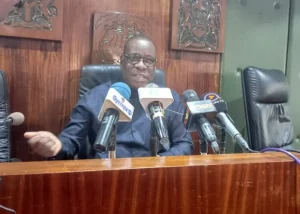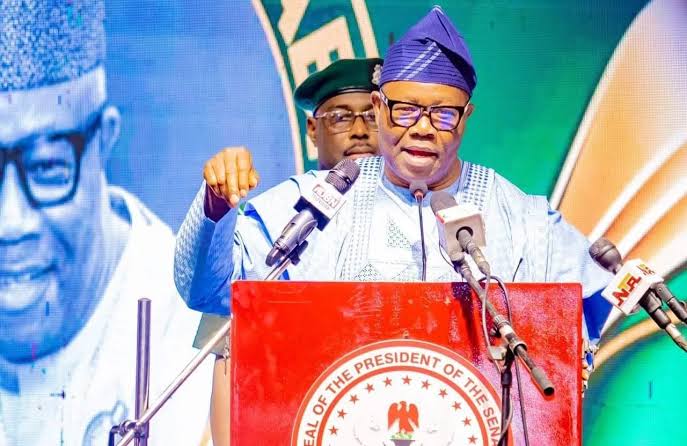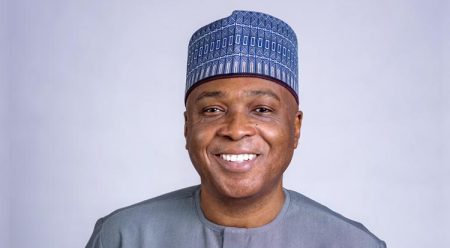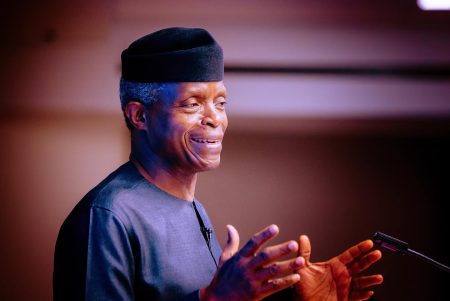A Robust Legislative Output: The 10th National Assembly’s Achievements Under Senator Godswill Akpabio’s Leadership
The 10th National Assembly, under the leadership of Senate President Godswill Akpabio, has demonstrated a remarkable commitment to legislative productivity. During a joint session with President Bola Tinubu to commemorate Democracy Day, Akpabio proudly announced a significant milestone: the introduction of a staggering 844 bills within the first two years of the assembly’s tenure. This impressive figure underscores the dedication of the senators to address the diverse needs and challenges facing the nation. The sheer volume of bills introduced signifies a proactive approach to lawmaking and a responsiveness to the evolving demands of the Nigerian populace. It reflects an active engagement with the issues confronting the country and a commitment to crafting legislative solutions to address them.
A closer examination of the legislative pipeline reveals the various stages of these bills. A substantial 499 bills have successfully progressed to the second stage in the Senate, indicating significant momentum in the legislative process. This advancement suggests a robust system of deliberation and debate, allowing for thorough consideration of the proposed legislation. Furthermore, 107 bills are currently undergoing scrutiny at various committee stages, a crucial step in refining and perfecting the proposed laws. This meticulous approach ensures that legislation is thoroughly vetted and aligned with the best interests of the Nigerian people. The committees provide a platform for expert analysis, stakeholder input, and careful consideration of the potential impact of each bill.
The 10th National Assembly has also prioritized addressing key policy issues through executive bills. A total of 26 executive bills have been acted upon, demonstrating a collaborative spirit between the legislative and executive branches of government. This partnership is essential for effective governance and ensures that policy initiatives are aligned with the overall national agenda. The Senate’s responsiveness to executive bills reflects a commitment to working together to achieve shared goals and implement policies that benefit the nation. This collaborative approach fosters a more efficient and effective government, capable of addressing pressing issues in a timely manner.
Beyond legislative initiatives, the Senate has also played a crucial role in addressing citizen concerns. Over 100 petitions have been received from Nigerians seeking redress and transparency, highlighting the Senate’s commitment to accountability and responsiveness to the needs of the people. These petitions provide a vital channel for citizens to voice their grievances and seek solutions through the legislative process. The Senate’s willingness to address these petitions demonstrates a dedication to representing the interests of the Nigerian people and upholding the principles of democratic governance. It reinforces the Senate’s role as a vital link between the government and the governed.
Senator Akpabio emphasized the importance of collaboration between the different arms of government, stating that progress thrives when governance is characterized by partnership, while contestation leads to suffering for the people. He also highlighted the significance of June 12th in Nigeria’s democratic journey, urging President Tinubu to consider establishing a museum to commemorate the historic 1993 presidential election. Such a museum would serve as a powerful symbol of the struggle for democracy and a reminder of the sacrifices made to achieve it. It would also provide a valuable educational resource for future generations, preserving the history of this pivotal moment in Nigeria’s political development.
The 10th National Assembly’s legislative record under Senator Akpabio’s leadership stands as a testament to its dedication to effective governance and responsiveness to the needs of the Nigerian people. The substantial number of bills introduced, the progress made in advancing them through the legislative process, the attention given to executive bills, and the responsiveness to citizen petitions all demonstrate a commitment to fulfilling the Senate’s constitutional mandate. This proactive and collaborative approach to lawmaking sets a positive precedent for future assemblies and reinforces the role of the legislature as a vital pillar of Nigerian democracy. The emphasis on partnership between the different branches of government further underscores the importance of working together to achieve common goals and build a stronger, more prosperous nation.













